In particular, in performing the audit task, with the consistent viewpoint in directing and operating to improve the quality, effectiveness and efficiency of audit activities to achieve the goal of "quality, more quality and more quality", the Party Executive Committee, the Party Committee and the State Auditor General have issued and resolutely directed the implementation of many synchronous solutions, thereby increasingly improving the quality of audit activities, contributing to tightening discipline, order, preventing and combating corruption, waste and negativity in the management and use of public finance and public assets. Specifically:
Leadership in developing annual audit plans
Identifying the Audit Plan (APA) as an important factor that greatly determines the quality of audits, the Party Committee of the State Audit Office issued a Resolution requesting Party committees and organizations at all levels to resolutely implement it effectively, creating profound and comprehensive changes. Accordingly, in the period of 2020-2025, the annual APA has closely followed the major orientations of the Party, the State and the supervision topics of the National Assembly , the National Assembly Standing Committee, issues of public concern or issues with high risks in the management and use of public finance and public assets; has increased the implementation of many large-scale, wide-ranging thematic audits. In parallel with the annual APA, the State Audit Office has also developed and issued a 3-year medium-term APA, thereby contributing to more specific orientations for specialized and regional APAs when developing annual APA.
In particular, to overcome the situation of overlap and duplication with inspection and examination agencies and overlap and duplication between units in the Industry right from the stage of building the annual technical plan, the State Audit Office has coordinated with the Government Inspectorate to organize direct working sessions to review the plans between the two agencies.
At the same time, the State Audit Office also issued criteria and principles for assigning audit tasks to affiliated units; issued documents directing affiliated units not to audit focal points and units that have been inspected and examined by the Government Inspectorate and the Central Inspection Committee, thereby fundamentally resolving the situation of overlap and duplication in the 2020-2025 term.
In addition, with the motto "compact but quality", the State Audit Office has reasonably integrated audit tasks in each audit, thereby significantly reducing the number of audit teams each year, limiting the frequency of audits, minimizing the impact on the regular operations of the unit, such as in 2022, 190 audit tasks were performed (245 teams); in 2023, 135 tasks were performed (174 audit teams); in 2024, 129 tasks were performed (166 audit teams); in 2025, 116 tasks were performed (156 audit teams).
Leadership and organization of audit implementation
In order to orient audit activities to be focused and unified throughout the industry, every year the Party Executive Committee and the Party Committee of the State Auditor General issue many directives and instructions, such as instructions on the objectives, key points and main audit contents; directives on the organization of audit activities; at the same time, for each thematic audit, the State Auditor General issues an audit guidance outline.
At the same time, to improve the efficiency and effectiveness of auditing activities serving the People's Councils of provinces and centrally run cities in performing their tasks and powers related to the management of public finance and public assets, the State Audit Office has issued a document requesting the Chairmen of the People's Councils of provinces and cities to coordinate in requesting and assigning annual auditing tasks to regional State Audit Offices; coordinate in exchanging information on the time of completion, approving the local budget settlement report, sending the local budget settlement report to the State Audit Office and using the audit results when considering and approving the local budget settlement according to the conclusions and recommendations of the State Audit Office... thereby the quality of auditing activities is increasingly improved, contributing to tightening discipline, order, preventing and combating corruption, waste and negativity in the management and use of public finance and public assets.
In addition, in the 2020-2025 term, many tasks assigned under the provisions of the new State Audit Law were implemented by the Industry in a more systematic and quality manner, which were highly appreciated by National Assembly Deputies, such as the task of submitting the State Audit's opinions on investment policies for important national projects; the task of submitting the State Audit's opinions on the State budget estimate and the annual central budget allocation plan.
Also during this term, the organization of audits was flexibly managed, adapting to difficulties and challenges, ensuring both the completion of the political tasks of the Industry and prioritizing units performing assigned political tasks.
For example: In 2021, to create all conditions for competent authorities to prevent and control the COVID-19 epidemic, the State Audit Office did not conduct audits of the health sector, the Public Security, the Military Command and reduced the time and scale of audits in provinces with the epidemic; in 2024, the audit tasks were reduced for localities to recover after Typhoon Yagi and in 2025, to create conditions for localities to reorganize administrative units at all levels and build a 2-level local government organization model, the State Audit Office reduced audits related to the district level, and at the same time adjusted the audit organization plan, prioritizing the audit of provincial budget settlement reports to be completed before June 30, 2025.
Synthesizing the audit results for the 2020-2024 term, the State Audit Office recommended handling the financial situation of VND 281,809 billion. The audit results have provided the National Assembly, the Government, competent agencies and audited units with many practical recommendations; increasingly meeting the information requirements for the supervision, law improvement and approval of the State budget settlement of the National Assembly and People's Councils at all levels.
Through the audit, many shortcomings, limitations and inadequacies in the management, operation and use of public finance and assets of ministries, branches, localities and audited units were discovered and recommendations for timely correction were made. At the same time, the State Audit Office recommended reviewing to cancel or replace, amend, supplement and issue new contents that are not in accordance with legal regulations or not suitable to the reality of 1,048 documents to plug "loopholes" and avoid loss and waste.
Leadership and direction in preventing and combating corruption in auditing activities
The Party Executive Committee, the State Audit Party Committee, and the State Auditor General have paid special attention to the work of preventing and combating corruption, waste, and negativity in auditing activities. Right from the beginning of the term, the Party Executive Committee has coordinated with the State Audit Party Committee to concretize resolutions, directives, conclusions, and regulations related to preventing and combating corruption, waste, and negativity into programs, plans, directives, and resolutions and issued many documents for synchronous implementation, creating positive changes in the entire Industry. Leaders and units have focused on auditing areas with high potential risks of corruption such as management and use of public finance and public assets; capital construction investment; management and use of land, resources, and minerals; BOT, BT projects; ... to promptly detect, prevent, and handle violations.
To improve the effectiveness of the fight against corruption and waste through auditing activities, the State Auditor General has issued many documents directing and guiding such as: the audit process of cases with signs of corruption to enhance the detection, verification and clarification of cases with signs of corruption during the auditing process for handling according to regulations; issuing instructions on a number of contents on auditing thrift practices and combating waste in the management and use of public finance and assets; coordinating with the Supreme People's Procuracy, the Ministry of Public Security, and the Ministry of National Defense to issue a joint circular regulating the coordination between the State Audit, investigation agencies, and the Procuracy in exchanging, transferring information and recommending consideration and prosecution of cases with signs of crime detected through the State Audit's auditing activities.
 |
Deputy State Auditor General Tran Minh Khuong. |
As a result, during the 2020-2025 term, the State Audit Office transferred 17 cases to the Police Investigation Agency for investigation, clarification and handling in accordance with the provisions of law; provided 1,851 records, audit reports and related documents to the National Assembly agencies, the Central Inspection Committee, investigation agencies and other competent state agencies to serve the investigation, inspection and supervision work. In addition, for the first time, in 2023, the State Audit Office conducted an audit of 02 cases with signs of corruption in Dong Nai at the request of the Central Steering Committee on preventing and combating corruption, waste and negativity.
On public disclosure of audit results; implementation of audit conclusions and recommendations
The disclosure of audit results has always been directed by the Party Executive Committee, the Party Committee, and the State Auditor General. During this term, the State Audit has disclosed the list of units that have not yet implemented audit conclusions and recommendations, digitized all audit reports to provide to the Ethnic Council, the National Assembly Committees, and the Central Inspection Committee; disclosed on the State Audit website the audit results of audits that detected waste, audits that achieved gold quality, and were awarded extraordinary rewards, and summarized annual audit results, as well as held annual press conferences to disclose audit results; At the same time, this was also the first term that the State Audit Office attended the Session to explain the implementation of audit conclusions and recommendations. Through this, the Party Committee and Party Committees of the units directed the organization of reviews and pointed out the reasons for not implementing the recommendations and proposed solutions. Therefore, the implementation rate of audit conclusions and recommendations during the term reached 70% - 87% (the average rate during the entire term was 81%), higher than the average rate of the previous term (74.7%); many audit recommendations that had been left over from previous years were inspected, urged by the Party Committee and Party Committees of the units, and required the audited units and competent authorities to direct their implementation.
Audit Quality Control Leader (KSCLKT)
During its tenure, the State Auditor General has issued many directive documents to improve the quality of audit quality such as the Audit Quality Regulations; perfecting the system of regulations on audit procedures, auditing instructions in various fields, the system of State Audit standards, audit forms and dossiers, etc.; providing guidance on professional expertise, criteria, assessment scales and standards for classifying the quality of audit teams, audit groups, audit team members and promoting the effectiveness of public service inspection work.
At the same time, during the term, 100% of the audit teams were supervised (via electronic diaries); many audit teams were directly controlled; many Chief Auditors were controlled in the organization and implementation of the audit quality control; many inspections were conducted. Thereby, shortcomings and inadequacies were pointed out in the direction, management and operation of unit leaders as well as the direction and leadership of audit activities; at the same time, measures were taken for units and unit leaders to promptly rectify, contributing to strengthening discipline and order in the public service activities of civil servants, public employees and employees of the State Audit, improving the quality of audits in particular and the quality and effectiveness of all aspects of the State Audit's work in general.
It can be said that in the period of 2020-2025, the State Audit Party Committee has focused on leading and directing the Party Committees, affiliated Party cells and the entire Industry to excellently and comprehensively complete the Resolution of the 8th Party Congress, term 2020-2025, leading audit activities closely following the goals of the State Audit Development Strategy to 2030 with the motto "Compact but quality", "Safety - Prestige", continuing to affirm the role and position of the State Audit in the political system as an effective tool of the Party and State in inspecting and supervising the management and use of public finance and public assets, contributing to tightening discipline, order, enhancing accountability in the management of public finance and public assets; promptly detecting, preventing and recommending acts of corruption, waste and negativity in the management and use of public finance and assets.
Tran Minh Khuong
Deputy State Auditor General
* Title by Vietnam Law Newspaper
Source: https://baophapluat.vn/tiep-tuc-khang-dinh-vai-tro-vi-the-cua-kiem-toan-nha-nuoc-trong-he-thong-chinh-tri-post550122.html






![[Photo] Prime Minister Pham Minh Chinh attends the event "Digital transformation of the banking industry by 2025"](https://vphoto.vietnam.vn/thumb/1200x675/vietnam/resource/IMAGE/2025/5/29/0e34cc7261d74e26b7f87cadff763eae)

















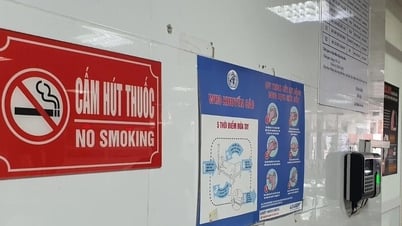
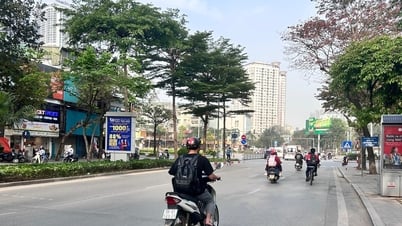
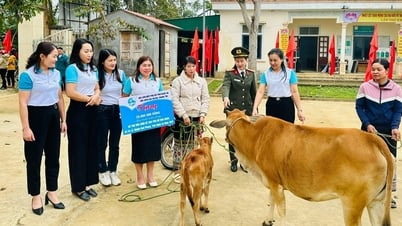

![[Photo] Prime Minister Pham Minh Chinh receives leaders of Excelerate Energy Group](https://vphoto.vietnam.vn/thumb/1200x675/vietnam/resource/IMAGE/2025/5/29/c1fbe073230443d0a5aae0bc264d07fe)

















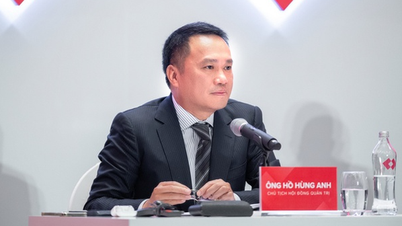




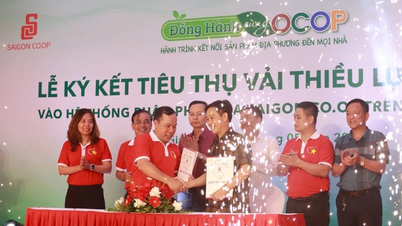

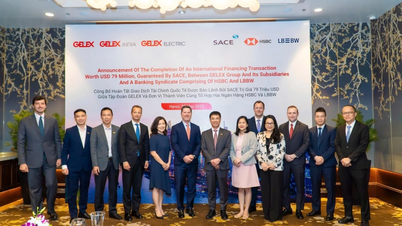



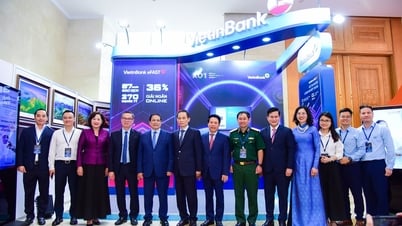


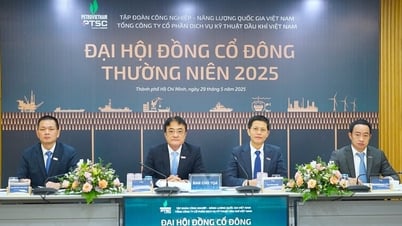







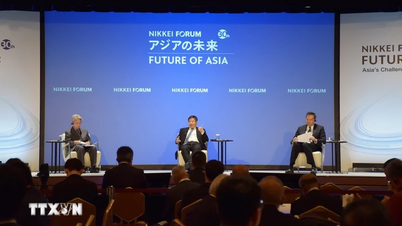


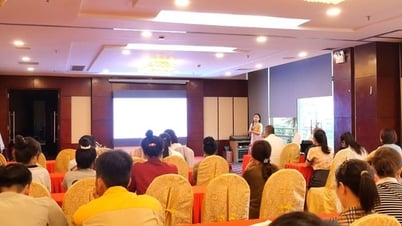
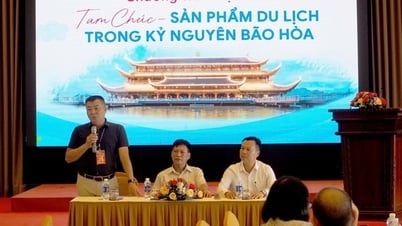










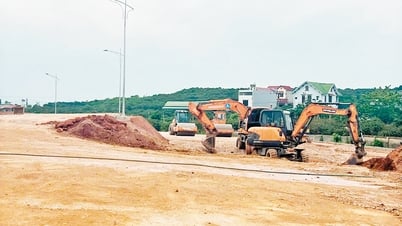

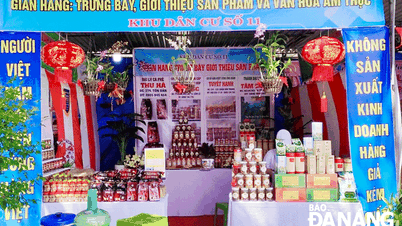

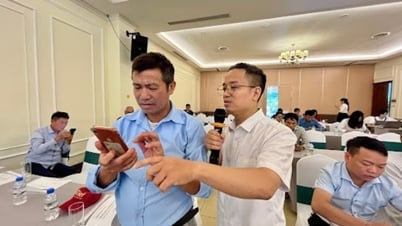






Comment (0)